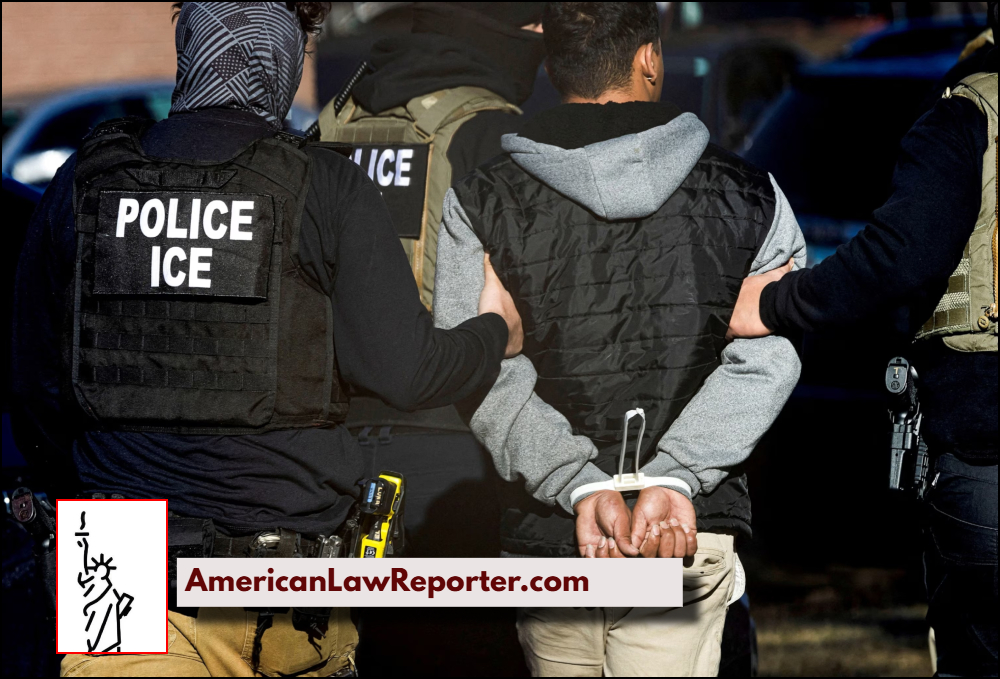A newly disclosed U.S. Immigration and Customs Enforcement (ICE) memo dated July 9, 2025, outlines a sweeping policy shift that permits the U.S. government to deport migrants to countries that are not their countries of origin—with as little as six hours’ notice under certain conditions.
Legal experts and immigrant rights advocates are calling the directive a stark erosion of due process rights and a troubling expansion of third-country deportation practices.
The internal memo, signed by acting ICE director Todd Lyons, was submitted as part of ongoing litigation and suggests the Trump administration is preparing for a dramatic increase in rapid deportations. While the memo states that 24-hour notice is the default, that timeframe can be shortened to just six hours in “exigent circumstances,” so long as the migrant has had a chance to speak with an attorney.
Under the directive, ICE is not required to provide additional legal screenings before removing migrants to so-called “safe third countries”—nations that have agreed not to persecute or torture deportees—marking a shift that aligns with the U.S. Supreme Court’s June 2025 decision lifting restrictions on such removals.
Deportations Already Underway

According to documents obtained and reviewed by Reuters and The Washington Post, the new policy has already been put into action. In the immediate aftermath of the high court’s ruling, eight migrants—from Cuba, Laos, Mexico, Myanmar, Sudan, and Vietnam—were deported to South Sudan, a country with which most had no familial, cultural, or linguistic ties.
The Trump administration has reportedly also been pressuring five African nations—Liberia, Senegal, Guinea-Bissau, Mauritania, and Gabon—to accept deportees from regions far beyond their own borders. The administration argues that such deportations are critical to swiftly removing undocumented individuals, especially those with criminal convictions.
However, immigration attorneys and human rights organizations say the practice violates basic protections under U.S. immigration law and international human rights standards.
“This policy falls far short of providing the statutory and due process protections that the law requires,” said Trina Realmuto, a lead attorney with the National Immigration Litigation Alliance, which is currently pursuing a class-action lawsuit to challenge the legality of such deportations.
Legal Concerns and Background
The new policy was filed in a legal case involving Kilmar Abrego Garcia, a Maryland resident who was allegedly wrongfully deported to El Salvador, despite not being a citizen of that country. Attorneys in the case argue that the memo supports their claims of systemic violations of immigrants’ constitutional and statutory rights, including the right to seek asylum and protection from persecution.
Legal analysts warn that the memo opens the door to increased use of third-country deportations, which were previously used only in limited cases during Trump’s first term (2017–2021), including deportations from El Salvador and Honduras to Guatemala.
During the Biden administration, a more controlled version of this practice was used, such as a deal with Mexico to accept migrants from Cuba, Haiti, Nicaragua, and Venezuela due to diplomatic challenges in returning them to their home countries.
Critics of the July 9 ICE memo say that, unlike those agreements, the current directive lacks transparency, legal safeguards, and sufficient oversight to prevent arbitrary removals and potential human rights violations.
Implications for Future Immigration Law
If fully implemented, this new approach could set a controversial precedent by allowing U.S. authorities to sidestep traditional deportation protocols and international asylum norms. Legal scholars are closely monitoring how courts handle the issue, especially in light of the Supreme Court’s recent posture toward executive discretion in immigration enforcement.
“This appears to be an attempt to speed up removals at the expense of basic legal process,” said one immigration policy expert. “Sending someone to a country they don’t know, where they have no support, no ties, and don’t speak the language—without proper screening—is a due process issue at its core.”
As litigation over the policy continues, immigration advocates are urging Congress and the courts to intervene and demand greater transparency and accountability from ICE and the administration.

